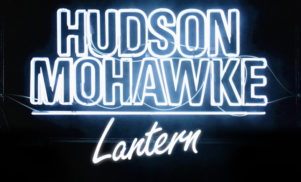Hudson Mohawke, in many respects, is a journeyman.
He’s logged well over a decade of commitment to beats, whether as an accomplished turntable DJ in his teens or with his labyrinthine debut full-length Butter in 2009. That album burst with languid sparkle; it was soulful but not appropriative, an inventive work by someone inspired by video games and their consoles, but crafted in a way that wasn’t trope-laden and hyper-referential. It was the initial evidence that Ross Birchard has his clutches in originality, distancing himself from others with the same aspirations who mostly just bonked listeners on the head with their Donkey Kong Country-gleaned influences.
He further proved his penchant for advancing electronic music with TNGHT, a collaborative project with fellow LuckyMe-er Lunice. Their self-titled debut EP gave way to one of dance music’s dopier trends, the 808 kick-heavy, Southern rap-informed trap, along with artists like Flosstradamus and Baauer. And the Scottish producer has gotten the recognition he deserves for his creations. TNGHT’s ‘R U Ready’ became Kanye West’s ‘Blood on the Leaves,’ for which HudMo serves as producer (he has credit on ‘I Am a God’ and Pusha T’s My Name is My Name track ‘Hold On’, too). And then, Kanye gave the Glasgow boy the G.O.O.D. nod. His sophomore effort Lantern is the result of these accomplishments.
Unlike TNGHT and Butter, the album finds Birchard traversing spectrums, leaving behind fluidity to explore a new sound on almost every track. ‘Very First Breath’ is even-handed, backward-looking and tame, and Irfane’s vocal is the kind of thing that makes people who don’t know any better love Disclosure. People lost their shit over ‘Ryderz’, but it must be because they don’t really know what Birchard is making. The song is a snoozy Kanye carbon with a sprinkle of that signature HudMo synth sound in the coda. It’s also the formative proof that sequencing is of no matter on this album; Lantern is a catalogue of ambition and varied interests.
With a crew of guests, including a grip of high profile vocalists, disparate worlds are crafted for each respective artist. Jhené Aiko is the primary benefactor here – on ‘Resistance’, the granola crunch of her output and honeyed melancholy is bolstered by restrained synths. ‘Indian Steps’ features Antony Hegarty, who already had a working relationship with Birchard, and feels like another meeting of the minds, a space where both artists are fusing their sounds together. But so much enterprise does not necessarily give way to consistent innovation. The Miguel collaboration ‘Deepspace’ is an infallible Kaleidoscope Dream-like construction, a warm and sensual cushion for the L.A. singer. Yet surrounded by ‘Lil Djembe’, a dank ode to West African hand drums, and the ebullient fuzz of ‘Shadows’, you question why Birchard wouldn’t push Miguel out of his comfort zone.
There are other head-scratching moments. ‘Scud Books’ is a bright collage of Hud Mo’s past and future, but bizarrely kicks off with a Swizz Beatz-informed intro which, while melting into the beat’s fabric, muddies the track. But transformative pieces like ‘System’ and ‘Portraits of Luci’ prove that Lantern, despite its curious moments, is undeniably big tent music for those who demand texture. And that’s where Hud Mo resides currently in his career trek: he has the ability to make music that contain peaks and valleys which are not necessarily one seamless sound. He can navigate his ship through various waters, no longer needing to be the arbiter of one new movement but able to create what he wants using multiple influences throughout music. It’s a reminder that Birchard has long progressed from the youngest UK DMC finalist to an electronic chameleon. He may not be suited to all the colors, but Lantern shows us he always wants to try on something new.





























